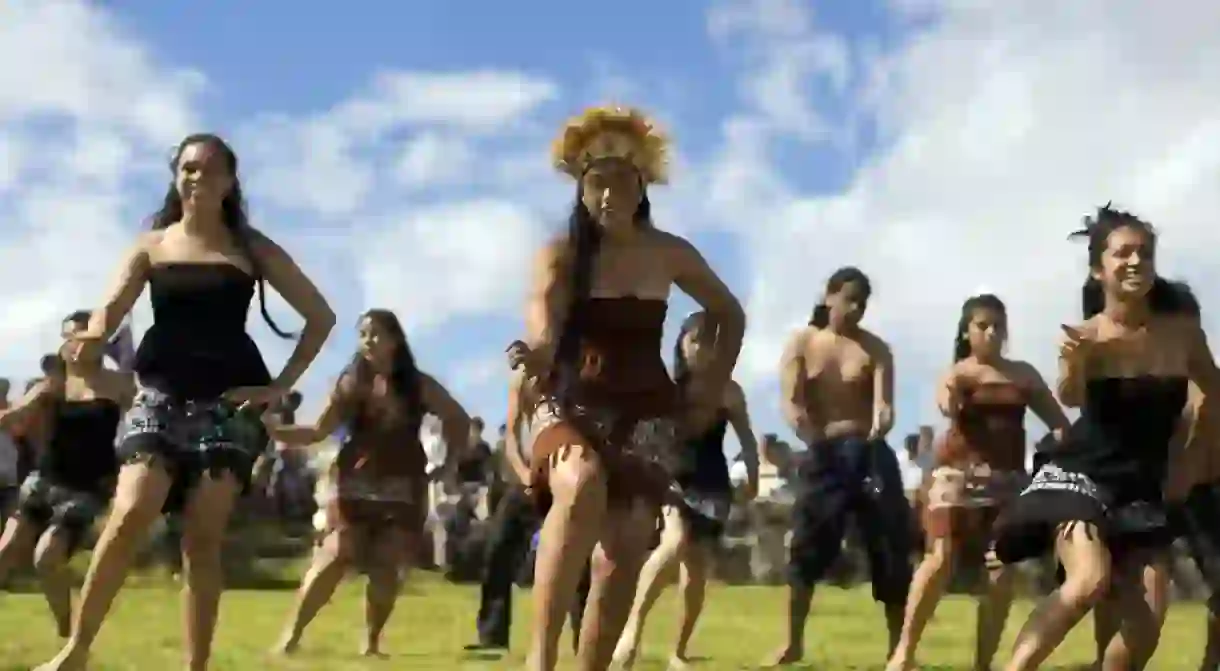The Ultimate Guide to Easter Island’s Tapati Rapa Nui Festival

Every year for two weeks in February, the Rapa Nui people of Easter Island put on a show like no other. The Tapati Rapa Nui Festival started out in the 1970s as a way for the native inhabitants to celebrate their heritage while passing their traditions on to the younger generation. Tourists have only recently begun to discover this intriguing and joyous event, regarded as the biggest Polynesian festival in the world.
A majority of the festivities take place in and around the island’s tiny capital city, Hanga Roa. Throughout the festival, tourists only need to hit the streets to experience native culture. Locals don tribal body paint and put on traditional loincloths and headdresses before heading out for an exuberant day of song and dance. Visitors are openly encouraged to get in on the action, with plenty of businesses renting native outfits and applying body paint to make them look and feel like a local.

The main area of the festival is a pleasant green field overlooking the sea known as Hanga Vare Vare. Here, a giant stage is constructed to host competitions and performances each night. Expect plenty of singing, dancing, and merrymaking in a high-spirited, although safe and family-friendly environment.

Numerous sporting events occur all over the island in which the community’s fittest and bravest compete against one another for honor and pride. Swimming and horse races are common, although an epic cross-country triathlon is what really puts the islanders’ endurance to the test. More fascinating still are the canoe races, where contestants paddle small traditional fishing vessels made from local reeds, much like they used to in days gone by.

But the most anticipated event of them all has to be the outrageous Haka Pei, a perilous and thrilling competition which is definitely not for the faint-hearted. Brave contestants climb to the top of a 1,000-foot (300-meter) volcano before mounting a crude banana tree sled and hurtling themselves feet first into the abyss, wearing little more than a loincloth for protection. These foolhardy participants fly dangerously fast down the grassy slope, reaching speeds of up to 50 miles per hour (80 kilometers per hour) before skidding to a stop in front of a roaring crowd of onlookers. Although tourists are permitted to get involved, they should be aware that such death-defying stunts probably aren’t covered by travel insurance.
The festival has become increasingly popular in recent years, so be sure to book hotels and flights well in advance and expect to pay peak season rates. Staying somewhere in Hanga Roa is ideal, although one of the many eco-resorts outside the city would be okay too. Unfortunately, the event organizers don’t release a timetable until shortly before it begins, so planning ahead for specific events is nigh-on impossible. Don’t let that turn you off though, because no matter when you arrive at Tapati Rapa Nui, you’ll be sure to have an unforgettable experience.

Of course, no trip to Easter Island would be complete without checking out the amazing Moai statues dotted around the island as well.













